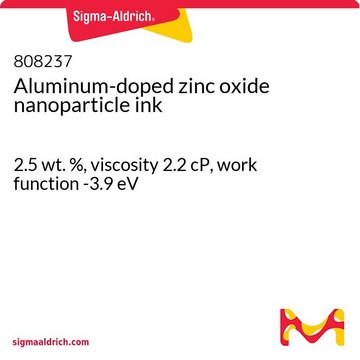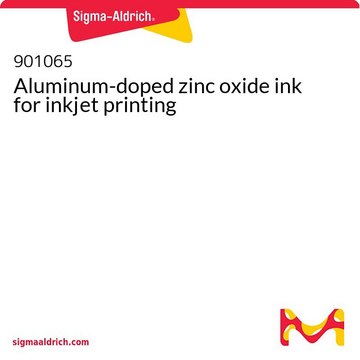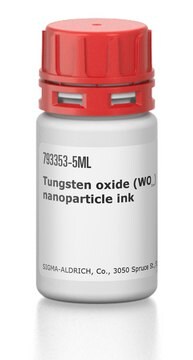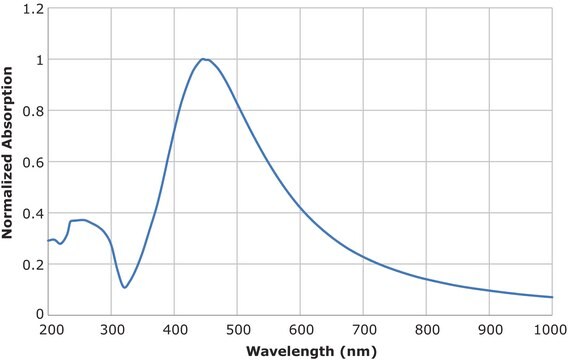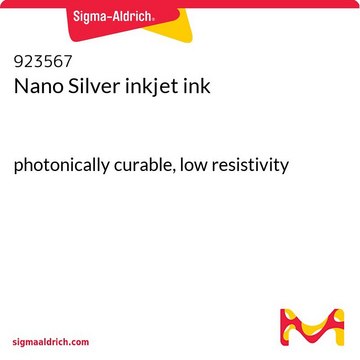901092
Aluminum-doped zinc oxide ink for spin coating/slot-die coating
Synonym(s):
AZO dispersion, AZO ink, Al-doped ZnO ink, Helios′Ink H-DZ41006 semiconductive ink
About This Item
Recommended Products
description
Conductivity: 10-3-10-4 S/cm
Work function: 3.6 ± 0.1 eV
Quality Level
form
liquid (dispersion)
sheet resistance
10-20 Ω/sq (in combination with silver nanowires)
color
slightly yellow to clear
surface tension
23 mN/m±5 mN/m
viscosity
<4 mPa.s(20 °C)
capacity
≥0.9 % loading (Nanoparticles loading)
General description
This ink shows great performance on spin coating and slot die coating and is compatible with various flexible substrates (Kapton,® PET, PET/ITO, etc.) but also glass/ITO.
The use of Helios′Ink H-DZ41006 semiconductive ink is greatly improving the devices performances by reducing the roughness of the TCE without a negative impact on the electrical conductivity and the transparency. Life time of the devices is also increased.
The use of Helios′Ink H-DZ41006 provides ETL layer with high performances. In addition, compared to standard ETL, the PCE not retained even with higher thickness.
Features and Benefits
- Easy deposition under atmospheric conditions (temperature and pressure).
- Good optical performances (visible light transmission >90%).
- Non CMR ink.
- Compatible with ITO layer and Ag NWs layer.
- Compatible with most flexible substrates.
- Low drying temperature making printing onto flexible substrates possible.
Preparation Note
Can be homogenized for 5 minutes in an ultrasonic bath in order to get rid of any aggregates.
Drying conditions: Oven, IR oven, vacuum oven.
Clean-up solution: Ethanol/Acetone.
Legal Information
Signal Word
Danger
Hazard Statements
Precautionary Statements
Hazard Classifications
Aquatic Chronic 3 - Eye Irrit. 2 - Flam. Liq. 2 - STOT SE 3
Target Organs
Central nervous system
Storage Class Code
3 - Flammable liquids
WGK
WGK 1
Flash Point(F)
58.1 °F
Flash Point(C)
14.5 °C
Choose from one of the most recent versions:
Already Own This Product?
Find documentation for the products that you have recently purchased in the Document Library.
Articles
Professor Tokito and Professor Takeda share their new materials, device architecture design principles, and performance optimization protocols for printed and solution-processed, low-cost, highly flexible, organic electronic devices.
Our team of scientists has experience in all areas of research including Life Science, Material Science, Chemical Synthesis, Chromatography, Analytical and many others.
Contact Technical Service